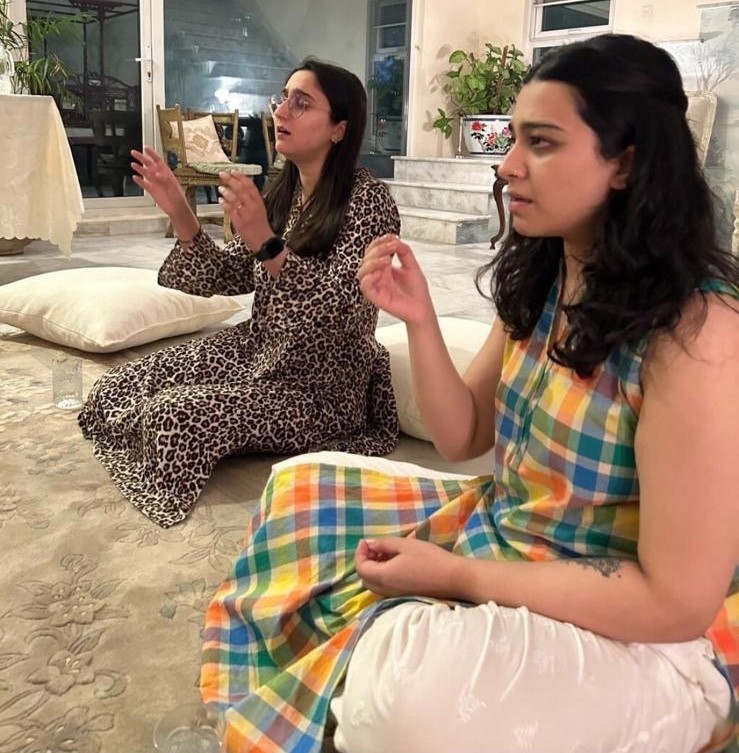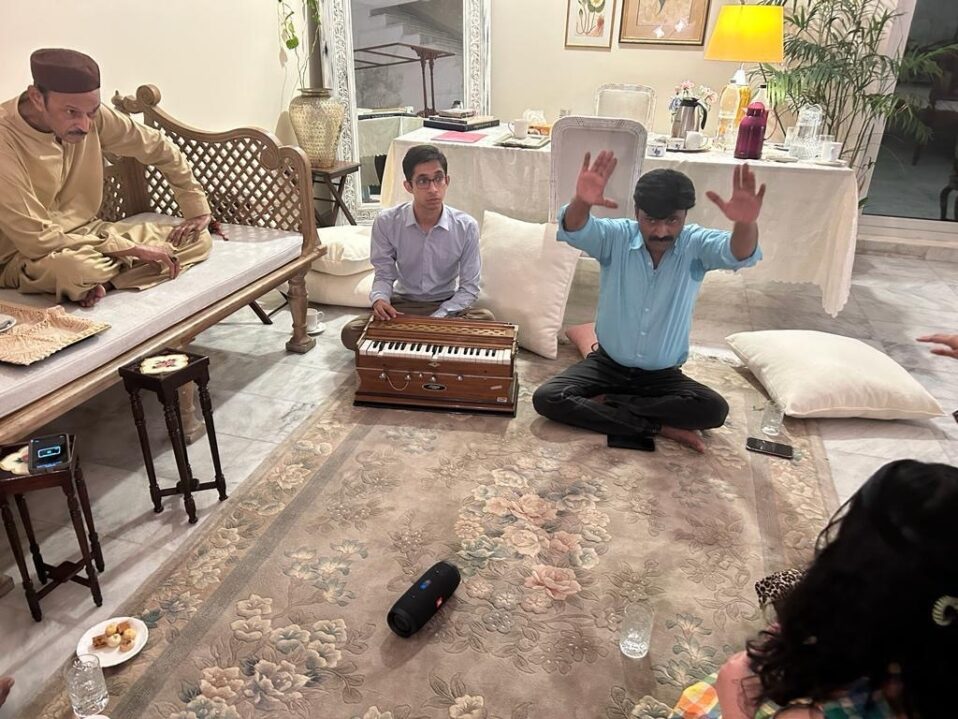We are over the moon excited about our next project, which just launched in Lahore, Pakistan. Healing Khayaal centers around the work of Pakistani vocalist and spiritual teacher Ustadh Naseer-ud-din Saami, the living master of khayaal, who traces his lineage back to the foundation of the now-rare 49-note scale in the 13th century.
Khayaal (meaning imagination or fantasy) is a musical practice that uses both melody and rhythm (raga and tala) and is known for its flexibility and space for creative imagination. Over the past eighty years the capacity of this vocal practice to heal mind, spirit, and body has been slowly forgotten. This project brings healing front and center.
Through a four-month residency in Lahore, Ustadh Saami, together with his sons, will work with a diverse group of young artists in Pakistan as they discover their voice through the healing art of khayaal. This project will become the first to document the impact of khayaal as a healing practice.
CCV is proud to be supporting this project whose genesis came out of conversations between Ustadh Naseeruddin Saami, his student and well-known vocal artist Zeb Bangash, and Dr. Homayra Ziad, a scholar of Sufi traditions and practitioner of community-engaged teaching at Johns Hopkins University. Bangash and Ziad are acting as project facilitators and managing the documentation of this effort.
About the Project:

Healing Khayaal introduces healing modalities of sound and listening. Ustadh Saami’s family has been one of the few who have continuously upheld and maintained khayaal first and foremost as a spiritual healing practice. In the Pakistani context, this has been a difficult space to inhabit. The past half-century has witnessed a break with Sufi artistic and spiritual traditions of all kinds in Pakistan, the direct impact of tremendous economic and social upheaval in the region fueled by the Cold War, the global War on Terror after 9/11, and the Saudi petrodollar-funded rise of the Muslim Religious Right. Saami himself has been under constant threat from groups with extremist theological stances, who characterize traditional spiritual music as antithetical to pious living.
Two growing trends make this an important time to explore and encourage artistic healing practices in Pakistan. First, young Muslim creatives in Pakistan are seeking inspiration and illumination through a rediscovery of life-giving spiritual traditions long denigrated by the Muslim religious right and vilified by global anti-Muslim animus post-9/11. These young people are pushing back against simplistic constructs of who they ought to be and are seeking new, flexible, pluralistic and liberationist expressions of spirituality to ground their artistic visions. Second, Ustadh Saami’s growing prominence in the international music scene in the last decade has brought khayaal renewed attention in Pakistan. This project responds to these two important trends to reignite the study of a centuries-old healing practice at a time when it is most needed.

The centerpiece of Healing Khayaal is a residency in the cultural center of Lahore for a group of 6 fellows with Ustadh Naseeruddin Saami and supporting artists Rauf and Urooj Saami. The residents are established and emerging artists from Lahore and surrounding areas who represent different artistic traditions. The Saami family will work intensively with resident fellows for four months, one-on-one and in small groups, introducing them to khayaal as a transformative musical and spiritual practice. Throughout the project we will document how the practice of khayaal has impacted the self-understanding and self-expression of the fellows, more broadly and in the context of their particular art form.



